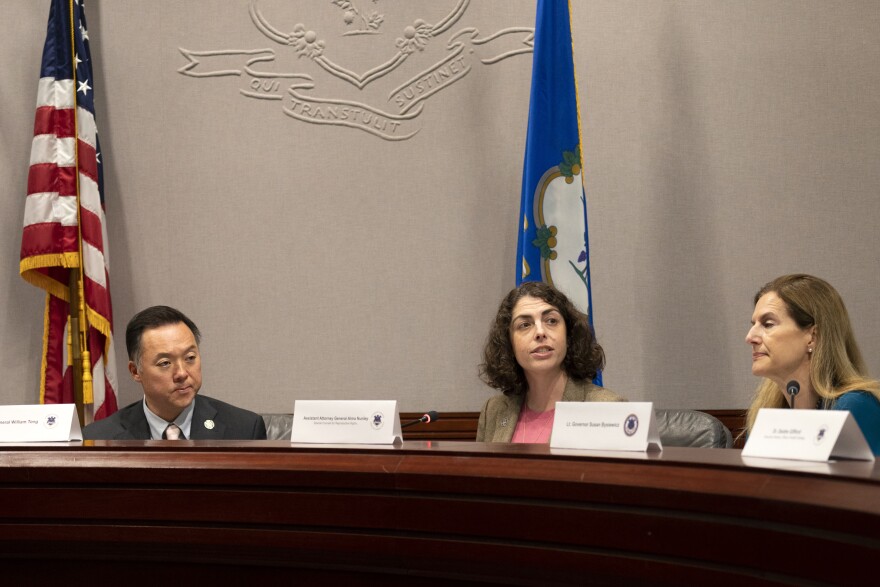Connecticut officials gathered Thursday morning to mark one year since the U.S. Supreme Court overturned Roe v. Wade. The decision removed the federal right to an abortion, although abortion remains legal in Connecticut.
State health care leaders joined Attorney General William Tong to discuss abortion access in Connecticut and next steps in the defense of abortion rights.
Tong mentioned the impact of Roe v. Wade’s overturning for his family, including his two teenage daughters.
“They are less free under the law. They have fewer rights,” Tong said. “They are at greater risk than they were just a year ago. And it is hard to imagine that that is true for American teenage girls, but it is.”
Following the Supreme Court decision in Dobbs v. Jackson Women’s Health, which removed guaranteed access to safe abortion, Tong said he was hopeful anti-abortion advocates wouldn’t instill a nationwide ban.
“We thought that maybe we could take the pro-life, anti-abortion advocates somewhat at their word, that they would leave it to the states. That Connecticut would have the right of self determination and that women in Connecticut would be able to make the decision for themselves and their families,” Tong said.
State leaders convened in the legislative building to assess where Connecticut and the nation stand one year after the overturning, and determine next steps. Also in attendance at the forum were Lt. Gov. Susan Bysiewicz, Reproductive Rights Caucus co-chairs Rep. Jillian Gilchrest and Rep. Matt Blumenthal, and several heads of local and regional reproductive healthcare providers and advocates.
“Today is an opportunity for us not just to take stock of where we are after a year, but what we’re going to do about it,” Tong said.

Tong was joined by the state’s first Special Counsels for Reproductive Rights. Assistant Attorneys General Alma Nunley and Emily Gait were appointed to the role Wednesday.
In their new roles, Nunley and Gait will lead the Office of the Attorney General in protecting abortion access and fighting for reproductive rights in Connecticut and nationwide. Formation of the special counsels is the state’s direct response to the nation’s recent abortion bans.
“The right to abortion access is completely illusory for women who wouldn't even know they were pregnant at the point in time that the gestational limit kicks in,” Nunley said. “Legal challenges are ongoing in numerous states and the state courts and the state constitutions are serving as the battleground now instead of the U.S. Supreme Court.”
Across the country, abortion laws are changing week-to-week, leaving women in a constant state of uncertainty about their rights, Nunley said.
“It’s a shifting landscape that has no stability at this point in time. For a woman to know where she has the ability to access an abortion is not clear,” Nunley said.





